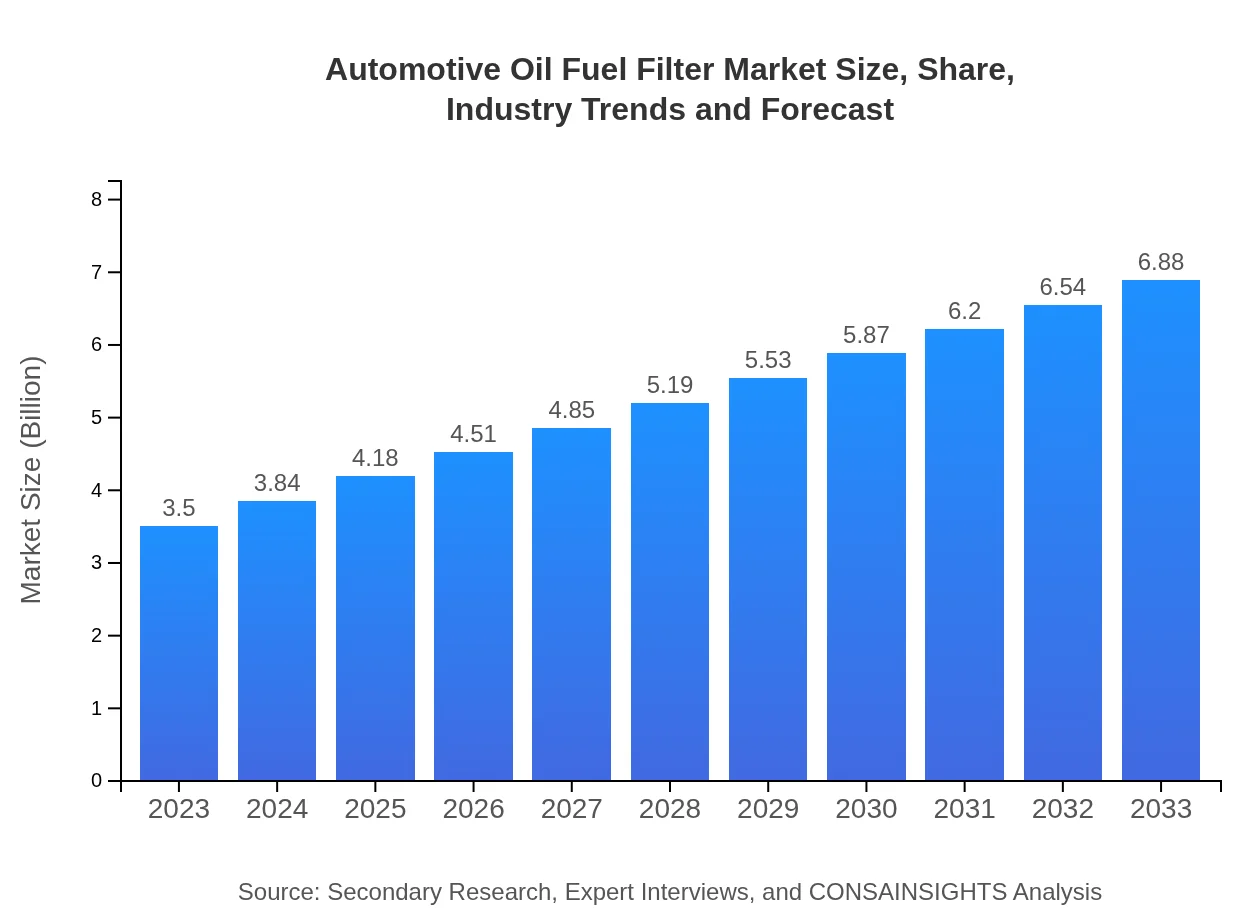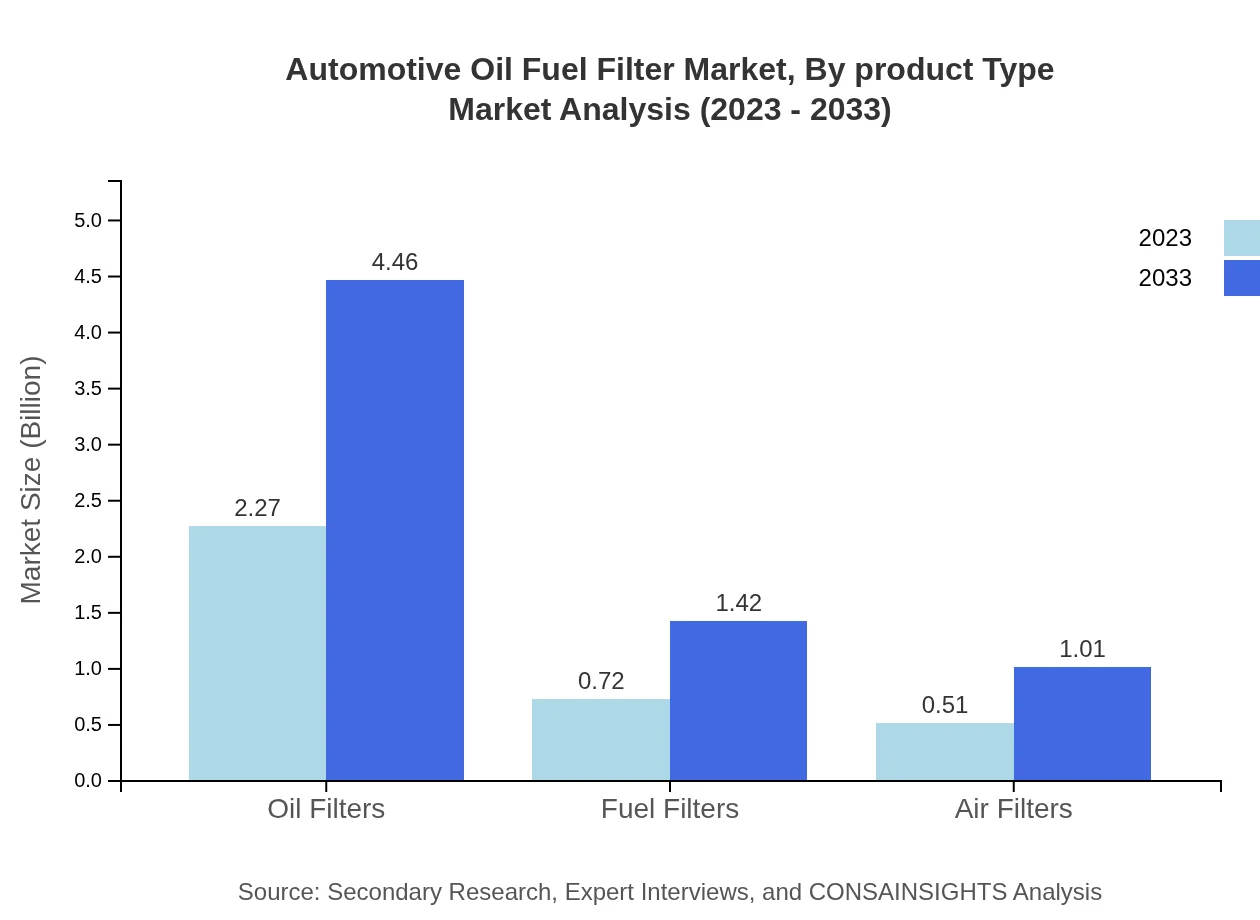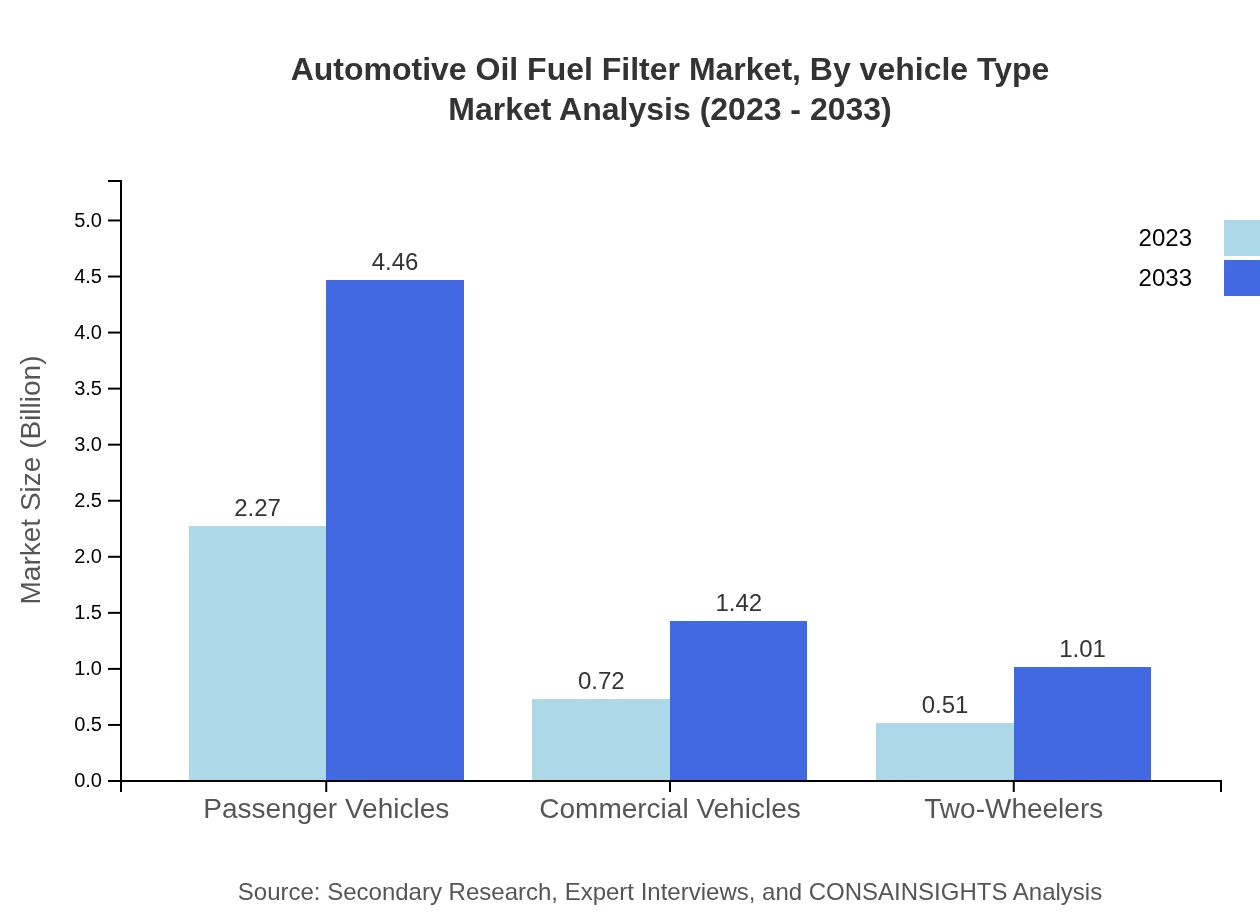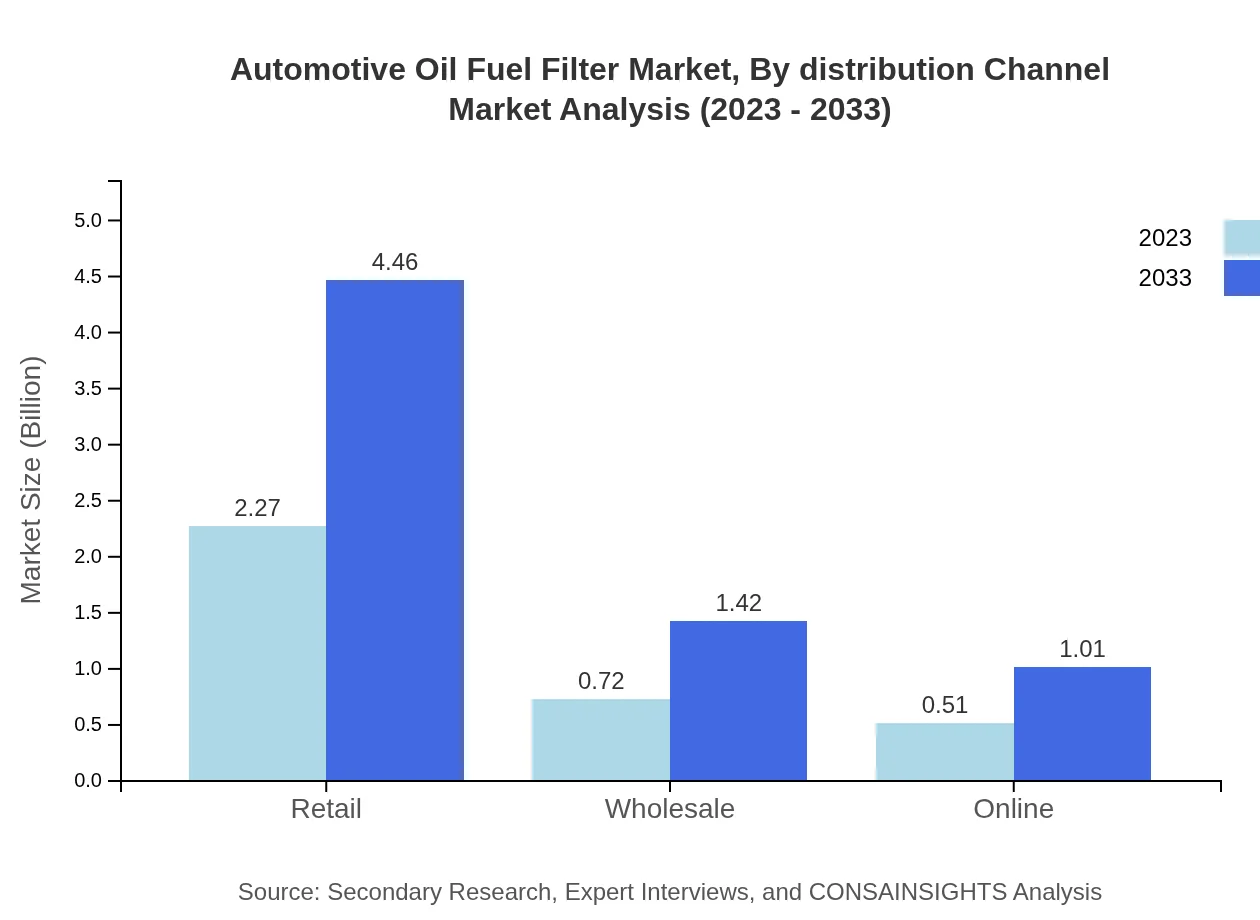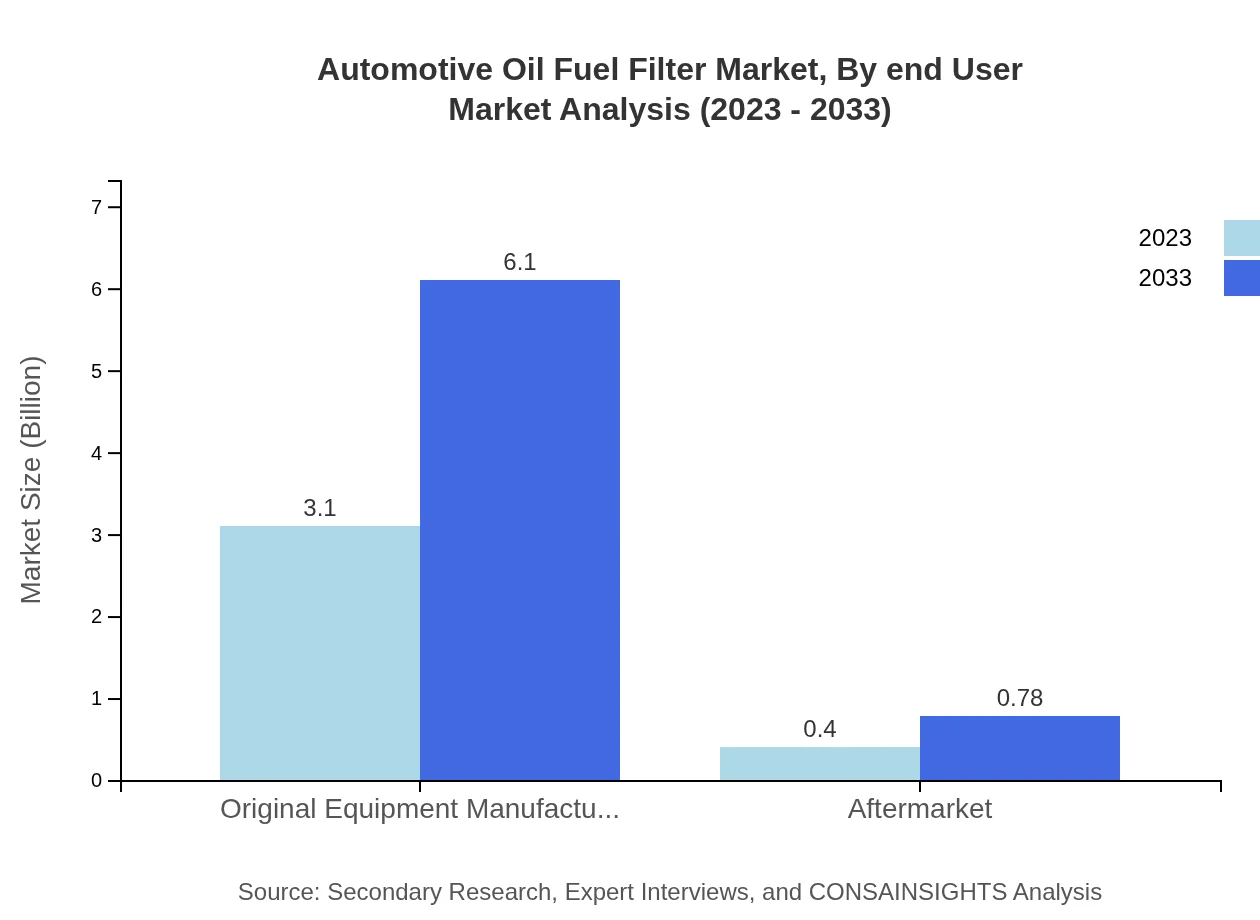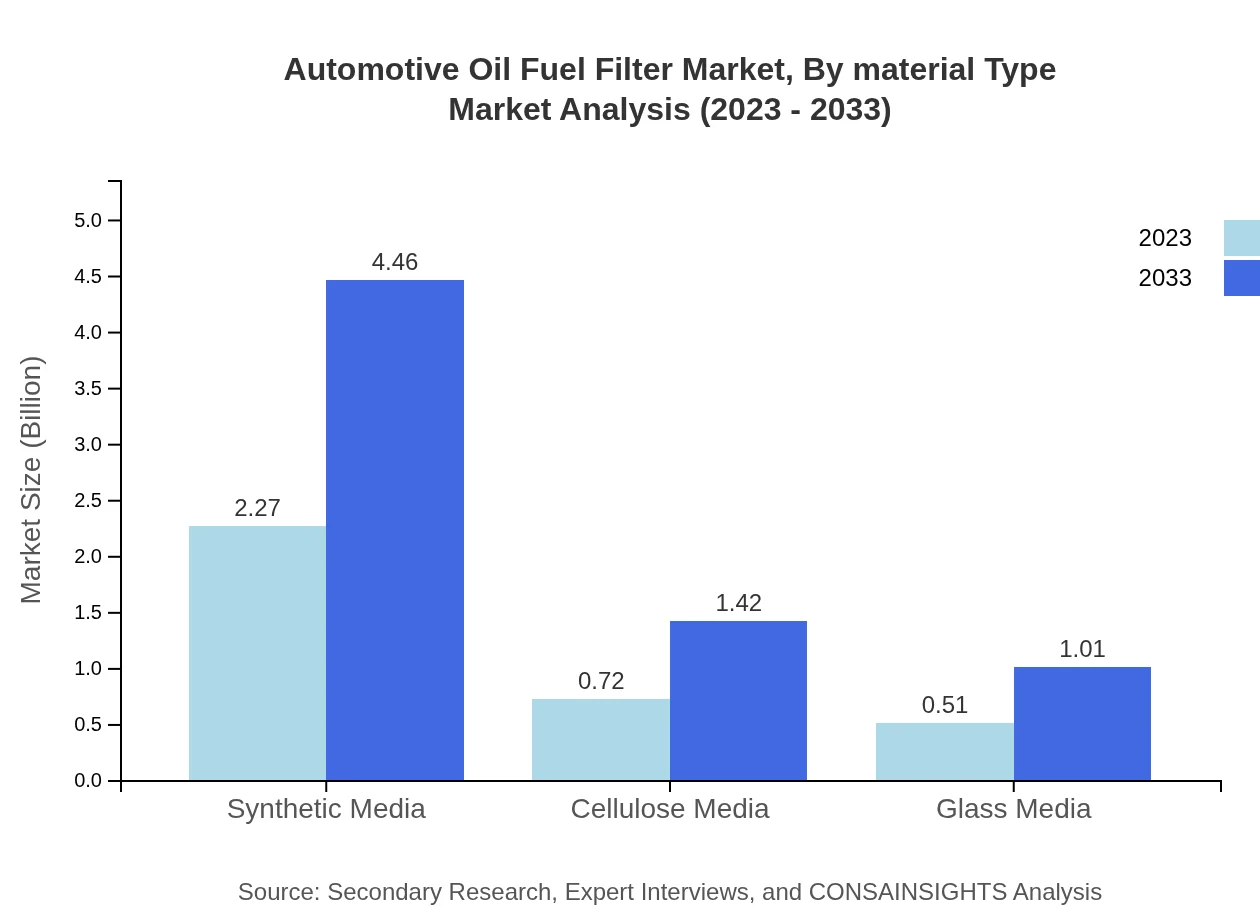Automotive Oil Fuel Filter Market Report
Published Date: 02 February 2026 | Report Code: automotive-oil-fuel-filter
Automotive Oil Fuel Filter Market Size, Share, Industry Trends and Forecast to 2033
This report provides an in-depth analysis of the Automotive Oil Fuel Filter market, covering market trends, size, and growth projections from 2023 to 2033. Insights on regional performances and segment analysis are also included to offer a comprehensive view of the industry's future.
| Metric | Value |
|---|---|
| Study Period | 2023 - 2033 |
| 2023 Market Size | $3.50 Billion |
| CAGR (2023-2033) | 6.8% |
| 2033 Market Size | $6.88 Billion |
| Top Companies | Mann+Hummel, Donaldson Company, Inc., MAHLE GmbH, Sofina |
| Last Modified Date | 02 February 2026 |
Automotive Oil Fuel Filter Market Overview
Customize Automotive Oil Fuel Filter Market Report market research report
- ✔ Get in-depth analysis of Automotive Oil Fuel Filter market size, growth, and forecasts.
- ✔ Understand Automotive Oil Fuel Filter's regional dynamics and industry-specific trends.
- ✔ Identify potential applications, end-user demand, and growth segments in Automotive Oil Fuel Filter
What is the Market Size & CAGR of the Automotive Oil Fuel Filter market in 2023?
Automotive Oil Fuel Filter Industry Analysis
Automotive Oil Fuel Filter Market Segmentation and Scope
Tell us your focus area and get a customized research report.
Automotive Oil Fuel Filter Market Analysis Report by Region
Europe Automotive Oil Fuel Filter Market Report:
In Europe, the market for Automotive Oil Fuel Filters is anticipated to grow from $0.96 billion in 2023 to $1.88 billion in 2033. Regulatory mandates for emissions and shifts towards electric vehicles that still require efficient filtration solutions contribute to this growth trajectory.Asia Pacific Automotive Oil Fuel Filter Market Report:
In 2023, the Asia Pacific region holds a market size of $0.67 billion for Automotive Oil Fuel Filters, which is projected to grow to $1.32 billion by 2033. This growth is supported by rising automotive production, particularly in countries like China and India, coupled with increasing disposable incomes and a growing middle class.North America Automotive Oil Fuel Filter Market Report:
North America showcases a robust market with a projected size of $1.26 billion in 2023, increasing to $2.47 billion by 2033. The significant growth is driven by a strong automotive industry and strict adherence to environmental regulations that favor high-efficiency filter products.South America Automotive Oil Fuel Filter Market Report:
South America is expected to see growth from $0.24 billion in 2023 to $0.47 billion by 2033. The growth in this region is driven by increasing automotive sales and enhancements in the distribution network, particularly in Brazil and Argentina.Middle East & Africa Automotive Oil Fuel Filter Market Report:
The Middle East and Africa market is projected to grow from $0.37 billion in 2023 to $0.73 billion by 2033. Economic recovery and infrastructure development initiatives are boosting vehicle sales and consequently the demand for oil fuel filters in this region.Tell us your focus area and get a customized research report.
Automotive Oil Fuel Filter Market Analysis By Product Type
In the product type segmentation, oil filters are projected to dominate with a market size of $2.27 billion in 2023, expected to reach $4.46 billion by 2033. Fuel filters represent a crucial segment, with a market size anticipated to double from $0.72 billion in 2023 to $1.42 billion by 2033. Air filters also have a significant share, contributing to the increasing focus on overall vehicle health.
Automotive Oil Fuel Filter Market Analysis By Vehicle Type
The market is largely characterized by passenger vehicles, holding a significant size of $2.27 billion in 2023 and expected to reach $4.46 billion by 2033. The commercial vehicle segment also exhibits growth potential, projected to grow from $0.72 billion in 2023 to $1.42 billion by 2033, driven by the need for durable and reliable filtration solutions.
Automotive Oil Fuel Filter Market Analysis By Distribution Channel
In distribution channels, retail plays a crucial role, holding a size of $2.27 billion in 2023 and projected to reach $4.46 billion by 2033. The wholesale segment is expected to grow alongside, increasing from $0.72 billion in 2023 to $1.42 billion. Online sales channels are also gaining ground due to the rise of e-commerce, with anticipated growth from $0.51 billion in 2023 to $1.01 billion by 2033.
Automotive Oil Fuel Filter Market Analysis By End User
The OEM segment dominates the market with a share of 88.7% in 2023 and is expected to maintain this position by 2033. The aftermarket segment, while smaller at 11.3% of the market, is gaining traction due to increasing consumer awareness regarding maintenance needs.
Automotive Oil Fuel Filter Market Analysis By Material Type
Synthetic media is the leading material segment, holding 64.8% market share in 2023, growing to 64.8% share by 2033. Cellulose media and glass media follow, representing 20.58% and 14.62% share respectively, indicating a trend towards higher-efficiency filtering materials in the market.
Automotive Oil Fuel Filter Market Trends and Future Forecast
Tell us your focus area and get a customized research report.
Global Market Leaders and Top Companies in Automotive Oil Fuel Filter Industry
Mann+Hummel:
Mann+Hummel is a leading manufacturer of filtration products known for their innovative approaches to air and oil filtration in automotive applications.Donaldson Company, Inc.:
Donaldson offers solutions for filtration and exhaust treatment, drawing from decades of experience in protecting engines across multiple industries.MAHLE GmbH:
MAHLE is a renowned automotive supplier offering a range of filtration solutions tailored to meet the demands of modern engines.Sofina:
Sofina specializes in filtration products including oil and fuel filters and is recognized for their commitment to sustainability and innovation.We're grateful to work with incredible clients.









FAQs
What is the market size of automotive oil fuel filter?
The automotive oil fuel filter market is valued at approximately $3.5 billion in 2023, with a projected CAGR of 6.8% expected to drive growth through 2033.
What are the key market players or companies in this automotive oil fuel filter industry?
Key players in the automotive oil fuel filter market include major automotive manufacturers and suppliers, such as Bosch, Mann+Hummel, and ACDelco, focusing on technological advancements and expanding their product offerings.
What are the primary factors driving the growth in the automotive oil fuel filter industry?
Growth drivers for the automotive oil fuel filter industry include increasing vehicle production, a rise in consumer awareness regarding vehicle maintenance, and stricter emission regulations prompting the need for efficient filtration systems.
Which region is the fastest Growing in the automotive oil fuel filter?
The fastest-growing region in the automotive oil fuel filter market is North America, projected to grow from $1.26 billion in 2023 to $2.47 billion by 2033, reflecting a strong demand for automotive components.
Does ConsaInsights provide customized market report data for the automotive oil fuel filter industry?
Yes, ConsaInsights offers customized market report data tailored to the specific needs of clients in the automotive oil fuel filter industry, ensuring relevant insights and strategic analysis.
What deliverables can I expect from this automotive oil fuel filter market research project?
Expect comprehensive deliverables including detailed market analysis, growth projections, competitive landscape, segmentation data, and regional insights that inform business strategy and investment decisions.
What are the market trends of automotive oil fuel filter?
Current market trends in the automotive oil fuel filter sector include increasing adoption of advanced filtration technologies, a shift towards more sustainable materials, and rising demand for aftermarket products in various vehicle segments.

